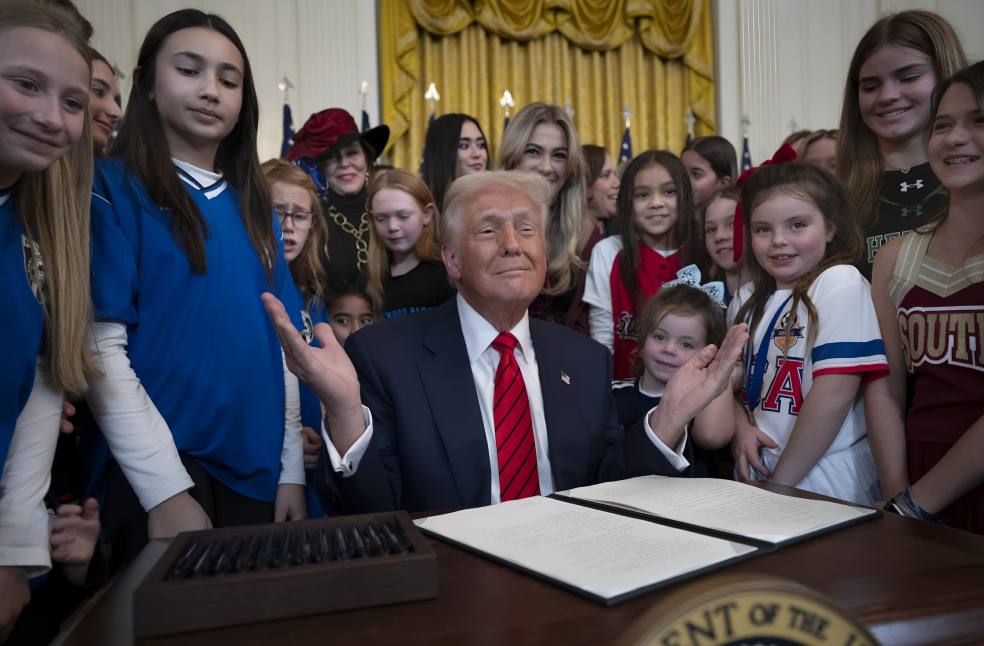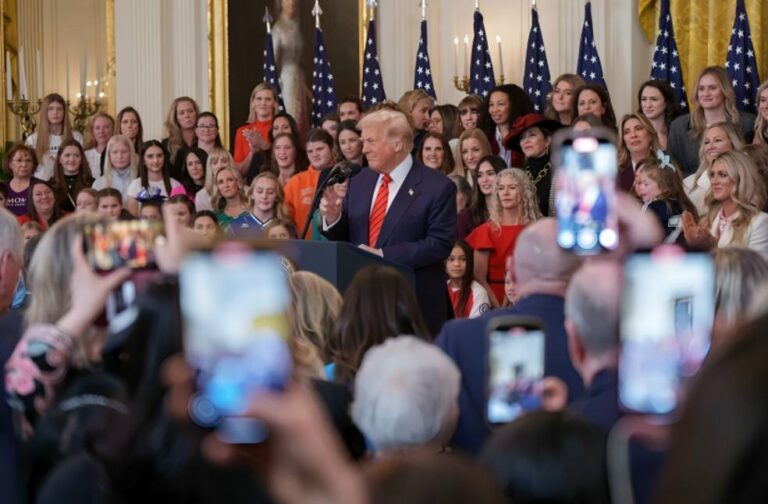United States: The National Collegiate Athletic Association (NCAA) has announced that transgender women and girls will no longer be permitted to compete in female college sports, aligning with a new federal directive issued by U.S. President Donald Trump.
The decision, which restricts participation in women’s sports to athletes assigned female at birth, follows an executive order signed by Trump a day earlier, banning federal funding to educational institutions that permit transgender women to compete in female sports.
In a statement, NCAA President Charlie Baker emphasised the significance of a clear, nationwide policy, rather than a “patchwork of conflicting state laws and court decisions.” Baker stated that, “The NCAA is an organisation made up of 1,100 colleges and universities in all 50 states that collectively enroll more than 530,000 student-athletes.”
Baker added that, “We firmly believe that clear, consistent, and uniform eligibility standards would sufficiently serve today’s student-athletes.” Baker counted that the ruling aligns with the NCAA’s mission to “protect, support, and enhance the mental and physical health of student-athletes.”
The NCAA, which oversees the largest number of collegiate athletes in the U.S., is the latest sports organisation to take a firm stance on transgender participation in competitive women’s sports. Other governing bodies, such as the National Association of Intercollegiate Athletics (NAIA) and the National Junior College Athletic Association (NJCAA), oversee smaller athletic programmes.

Transgender women’s participation in sports has become a controversial political issue, with LGBTQ advocates driving for greater inclusion and critics arguing that biological differences create an unfair playing field.
A recent poll showed that 79 percent of Americans oppose transgender women competing in female sports, a sharp gain from 62 percent in 2021. Former college swimmer Riley Gaines, who has been vocal in opposing trans inclusion in women’s sports, welcomed the decision.
Gaines stated that, “I can’t even begin to tell you how vindicating it feels knowing no girl will ever have to experience what my teammates and I did.” LGBTQ rights organisations widely criticised Trump’s executive order and the NCAA’s subsequent ruling, calling it discriminatory.
Athlete Ally, a group advocating for LGBTQ inclusion in sports, issued a statement criticising the policy shift. LGBTQ stated that, “We’ve known this day was likely to occur for a long time, as this administration continues to seek simple solutions to complex issues, often resulting in animus towards the most marginalized communities in our country.”
Trump, who has signed multiple executive orders restricting transgender rights, supported his latest directive at a signing ceremony, stating that, “We will not stand by and watch men beat and batter female athletes.”
With the NCAA’s ruling now in effect, the debate over transgender inclusion in sports is expected to strengthen, shaping discussions ahead of the upcoming U.S. presidential election.



